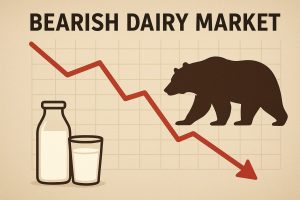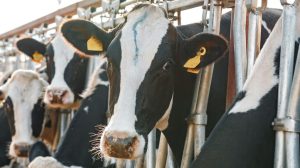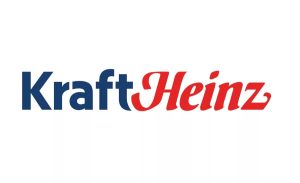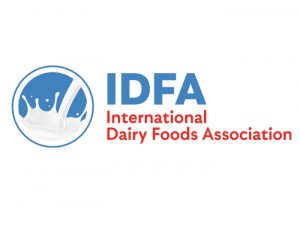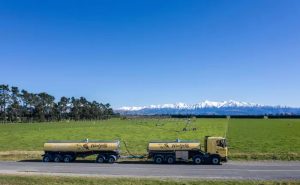
With a cattle population of more than 6.5 million head, and slightly less than 3 million humans, cattle significantly outnumber Kansans in the Sunflower State. So much so, according to Mike Brouk, Ph.D., a dairy management extension specialist with Kansas State University, much of the dairy produced in the Sunflower State is shipped to other states.
But the amount of milk surplus might change in the coming years. On Friday, Hilmar Cheese Co., which will take about two years to build, broke ground on a new cheese factory in Dodge City.
When looking for a third location for a cheese manufacturing plant, David Ahlem, president and CEO of Hilmar Cheese, said, “Dodge quickly rose to the top, the cream of the crop.”
Ahlem said the company decided on Dodge City for several reasons, including a skilled workforce, a central location with “excellent transportation networks” and a business and agricultural-friendly climate.
“We believe (it is) a place where dairy producers can operate and grow their business in a sustainable fashion for years to come,” he said.
Although there were several hurdles to bringing a cheese processing plant into the state, Ahlem said the bipartisan support and “can-do attitude” from city, state and federal officials helped him navigate the terrain. He recognized Dodge City Mayor E. Kent Smoll, Gov. Laura Kelly and U.S. Sen. Jerry Moran in particular.
Where dairy in Kansas stands
Milk production in Kansas and across the U.S. is increasing. July 2022 surpassed July 2021 by 0.2%, coming in at roughly 19 billion pounds, the USDA’s National Agricultural Statistics Service said, with the number of head being around 9.4 million nationwide.
In 1996, Kansas ranked 30th in milk production. By early 2020, the state had 159,000 dairy cows on 260 dairies.
In August 2022, milk production in Kansas increased by 3% over last year, totaling 347 million pounds, the USDA reported. The average number of milk cows in the Sunflower State was 174,000 head, which is 4,000 head more than last year. Milk production per cow averaged 1,995 pounds.
Kansas has changed its footing, gradually becoming a larger dairy producing state. As per USDA 2022 reports, the Sunflower State, now lags behind 13 states, with California, Wisconsin, New York, Idaho and Texas taking the lead.
The Kansas Department of Agriculture considers Kansas a major dairy expansion state.
“We have been successful in recruiting dairies,” said Moran, of collaborative efforts to bring in dairy producers for more than two decades. “And beyond the dairies, we know that we need to be able to process that milk. And so we’ve been working to find a cheese plant to be built to come and arrive in western Kansas.”
Kansas dairy producers need a place to process their liquid milk, much of which travels to other states for processing.
“We do know that the plant will require milk on a daily basis from about 110,000 cows or so, so it’s a significant plant. There probably will be some expansion of our current dairy herds,” said Brouk, of K-State. “As well as maybe some new operations.”
But, Brouk said, not all the liquid milk Hilmar needs will come from Kansas. And Hilmar already has plants in Texas and Hilmar, California.
Brouk estimates the expansion to be slow and steady, believing some of Hilmar’s liquid milk needs may be met by dairies in Texas, some of which they might already be doing business with. But, he expects, many Kansas dairies will deliver milk to the processor as opposed to shipping it across state lines.
“We’ve had a 3.14 increase in total milk production here in the state,” Brouk said. “We’ve had a 1.5 fold increase in production per cow since 1998.”
Brouk expects this trend to continue.
The CEO of the Kansas Dairy Association, Janet Bailey, said she expects the dairy industry to grow in Kansas because of the ability to find grain and feed, less expensive land and a “solid dairy climate.”
“People who follow the market are predicting that as we see cow numbers grow (in Kansas), and we see reductions of dairy in other states,” Bailey said. “We recognize that happens because we have a state that appreciates all of agriculture, including dairy.”
What bringing a cheese processing plant to Dodge City means for Kansas
Hilmar expects to create around 260 new jobs, employing people from western Kansas, as well as bringing families into Dodge City. Gov. Kelly estimates this plant will mean $600 million in new capital investment.
“In the longer term, we expect that this project will end up creating another 750 jobs and infuse another $500 million into the local area,” she said. “So it is a good day for Dodge City, but it’s also a very good day, a great day for the state of Kansas.”
Kelly said the new businesses, including Hilmar, coming to the state have attracted more than $13 billion of investment into the Kansas economy. Kelly thanked Sen. Moran for his help and dedication to the project.
“Kansas is being recognized as one of the most pro-business states in our country,” she said. “There are several reasons businesses like Hilmar Cheese are coming to Kansas.”
Along with being affordable and geographically situated in the center of the U.S., Kelly cited strong workforce, child care and high speed internet as attractive features for new businesses.
Dairy producers and restaurant owners and manufacturers will have less expenses for shipping raw milk to the plant and cheese product from the plant.
What cheese does Hilmar Cheese produce?
Founded in 1984, is one of the world’s largest producers of high quality American-style cheese and whey products, by 12 local dairy farm families in the Central Valley of California. The company added a state-of-the-art production facility in Dalhart, Texas, in 2007. Privately owned, the company employs more than 1,500 local residents of the two areas.
Hillmer Cheese produces the following cheeses:
- Mild Cheddar.
- Vintage Cheddar.
- Milled Curd Cheddar.
- White Cheddar for Export.
- Reduced Fat Cheddar.
- Colby.
- Colby-Jack.
- Reduced Fat Colby-Jack.
- Monterey Jack.
- Monterey Jack with Jalapeño Peppers (Pepper Jack).
- Reduced Fat Monterey Jack.
- Queso Quesadilla.
- Queso Asadero.
- Gouda.
- Muenster.
- Mozzarella.
Most cheese varieties are available in 40-pound blocks packaged in corrugated paper boxes. In Texas, there is a retail store.
Cheese is used by private label, regional and national brand cheese packagers for retail grocery, food service and ingredients. The whey is processed into whey protein products that are used as ingredients in many foods, including nutritional beverages and bars; and Lactose, which is marketed internationally as an ingredient in confections and infant formula.
“When we have the ribbon cutting here, I’ll bring cheese,” said Ahlem, Hilmar’s CEO. “It’s time to get the heck into Dodge.”




